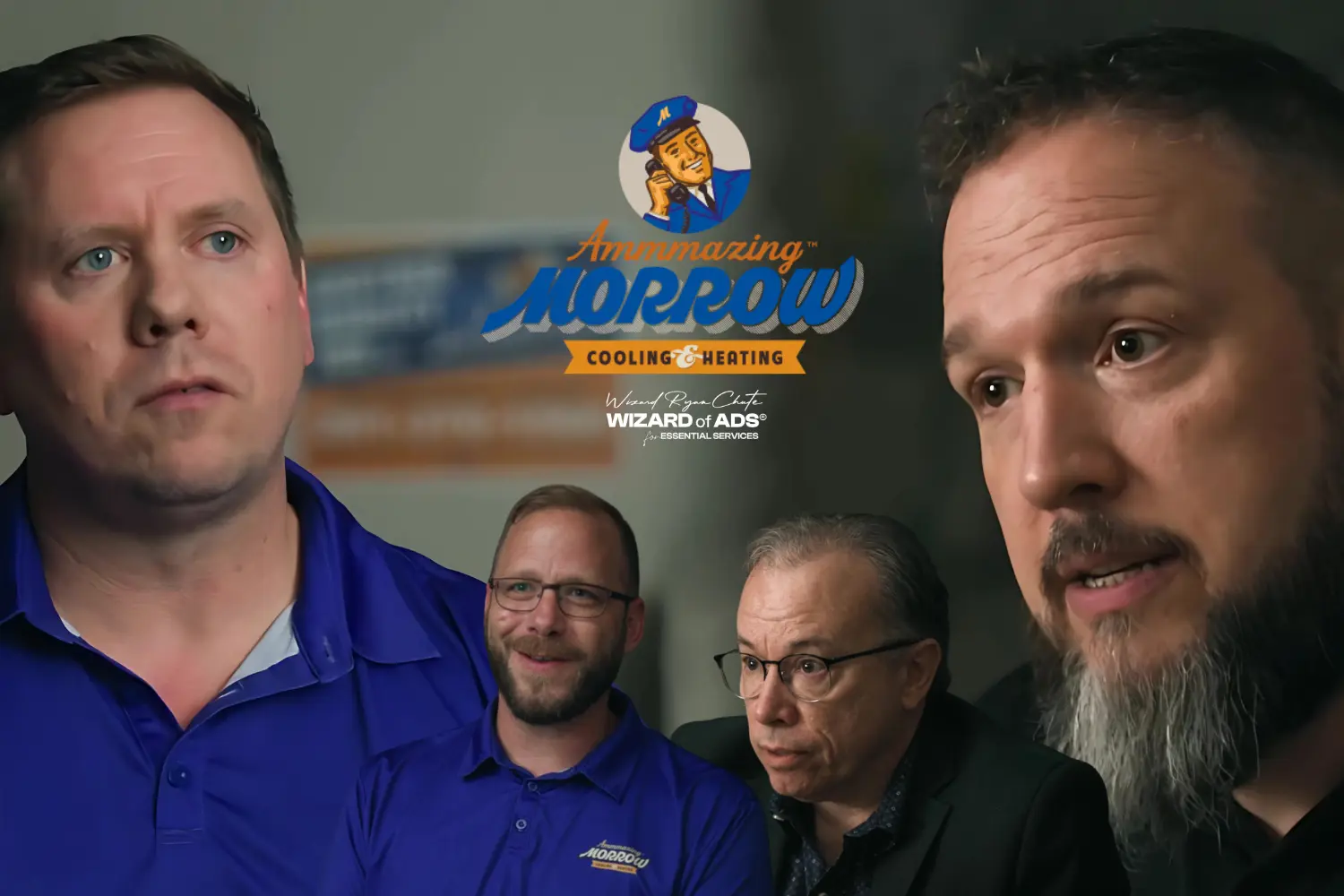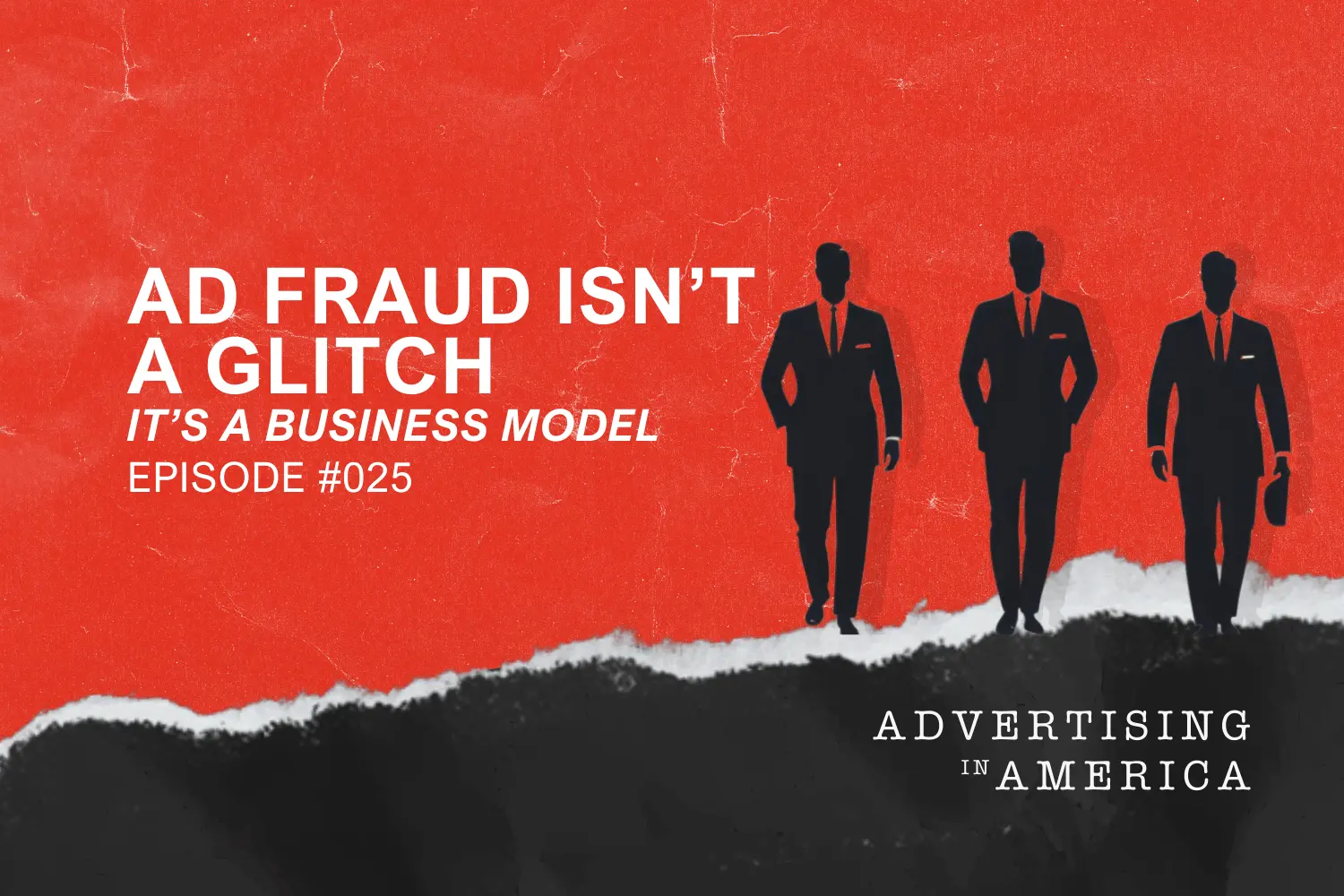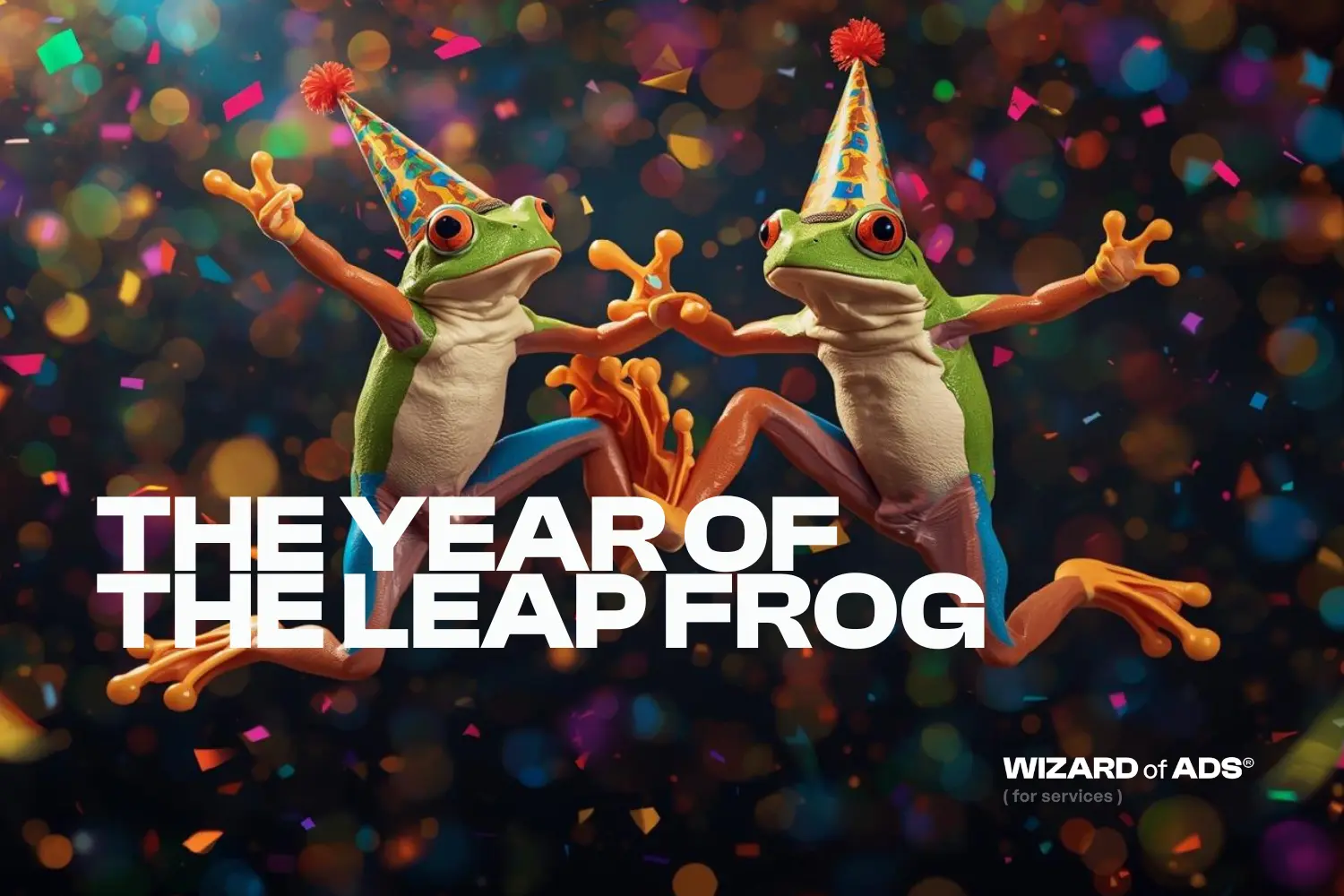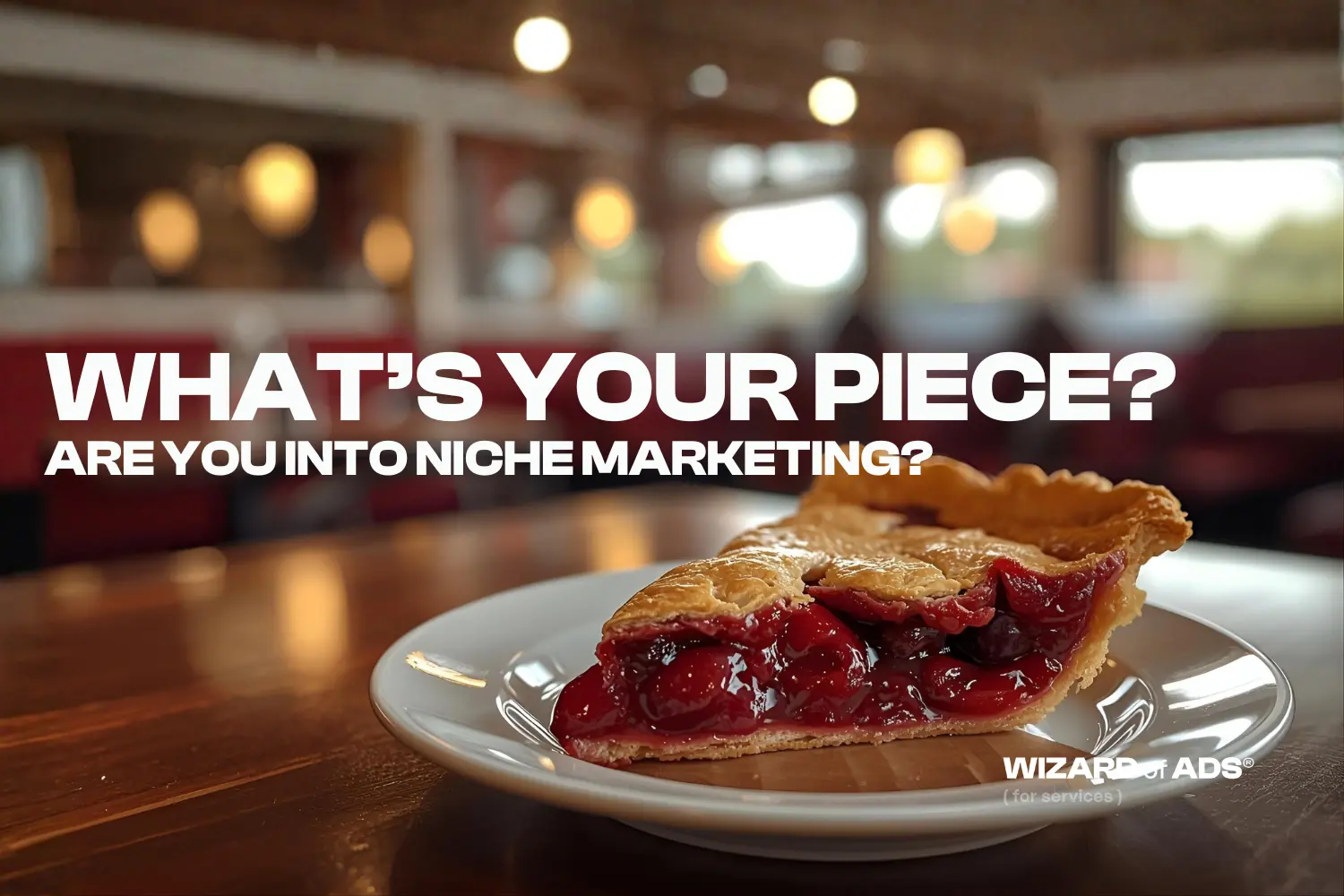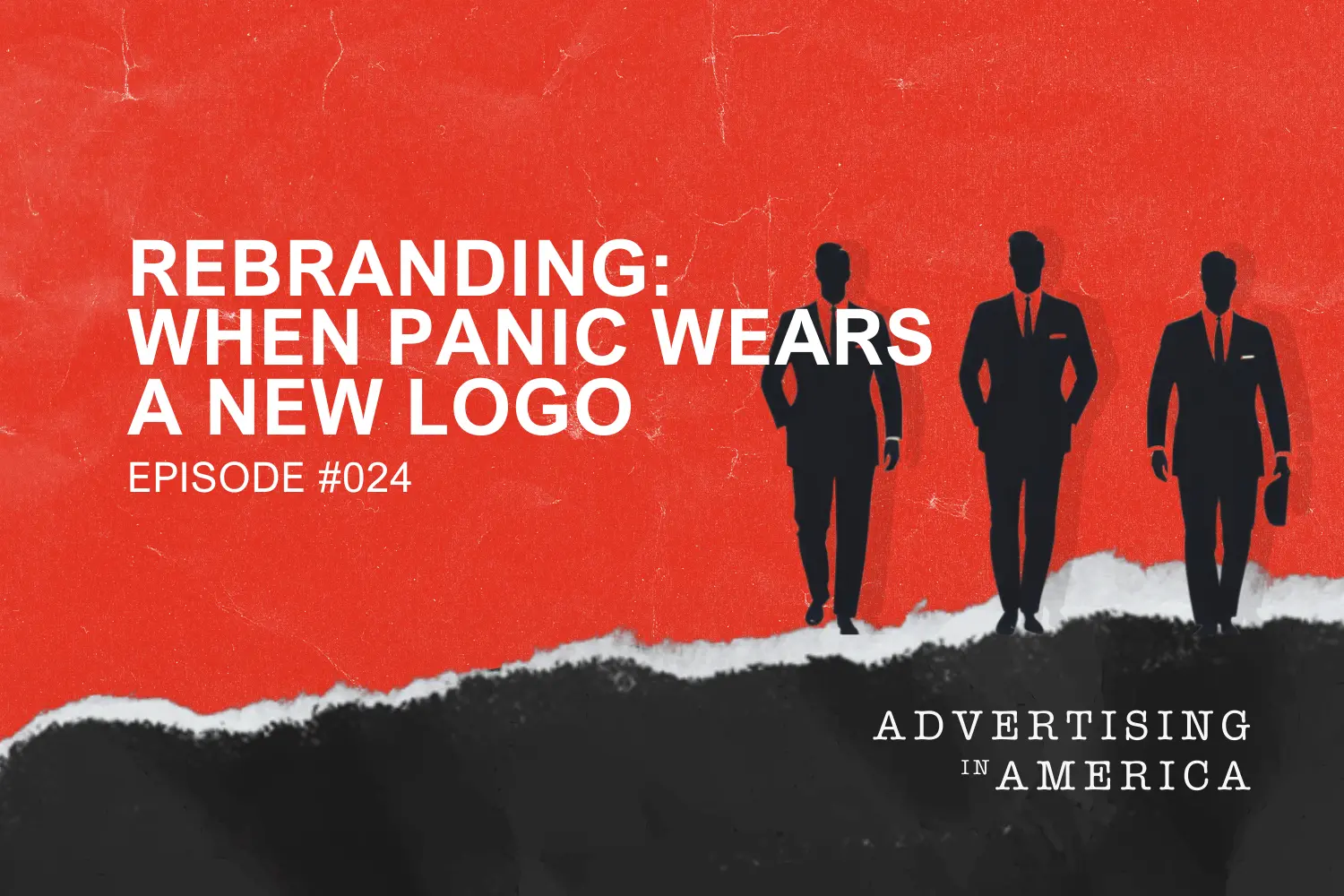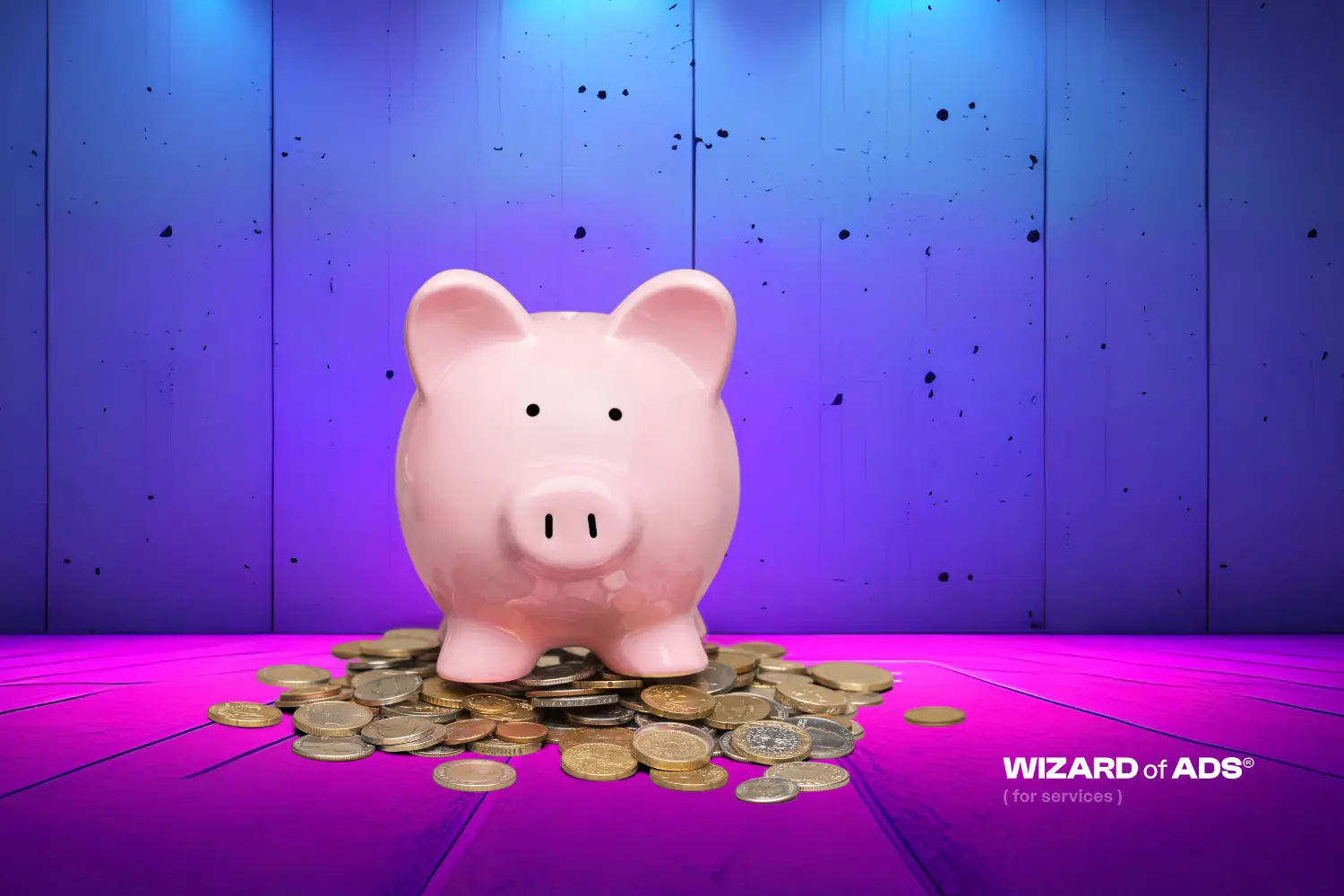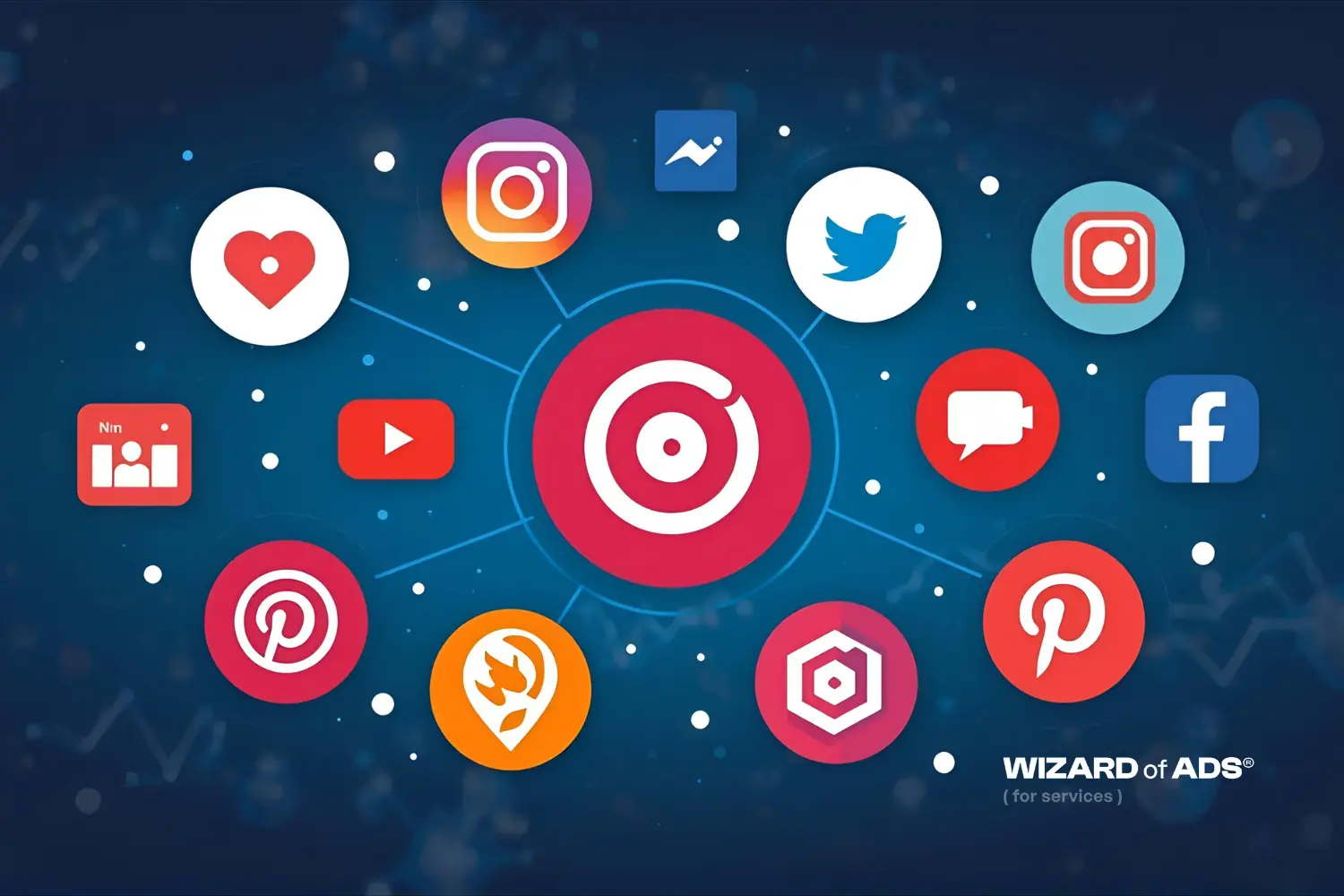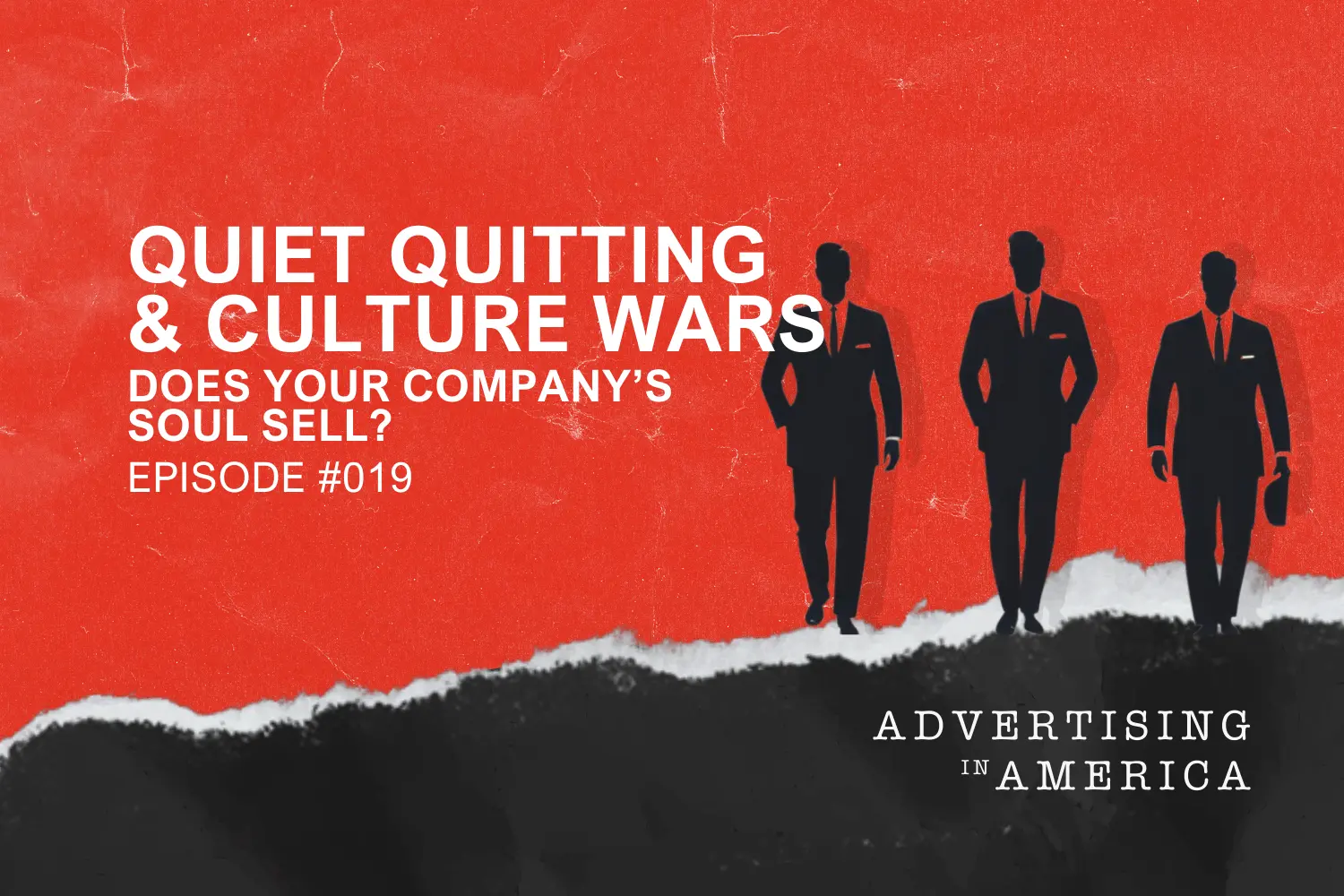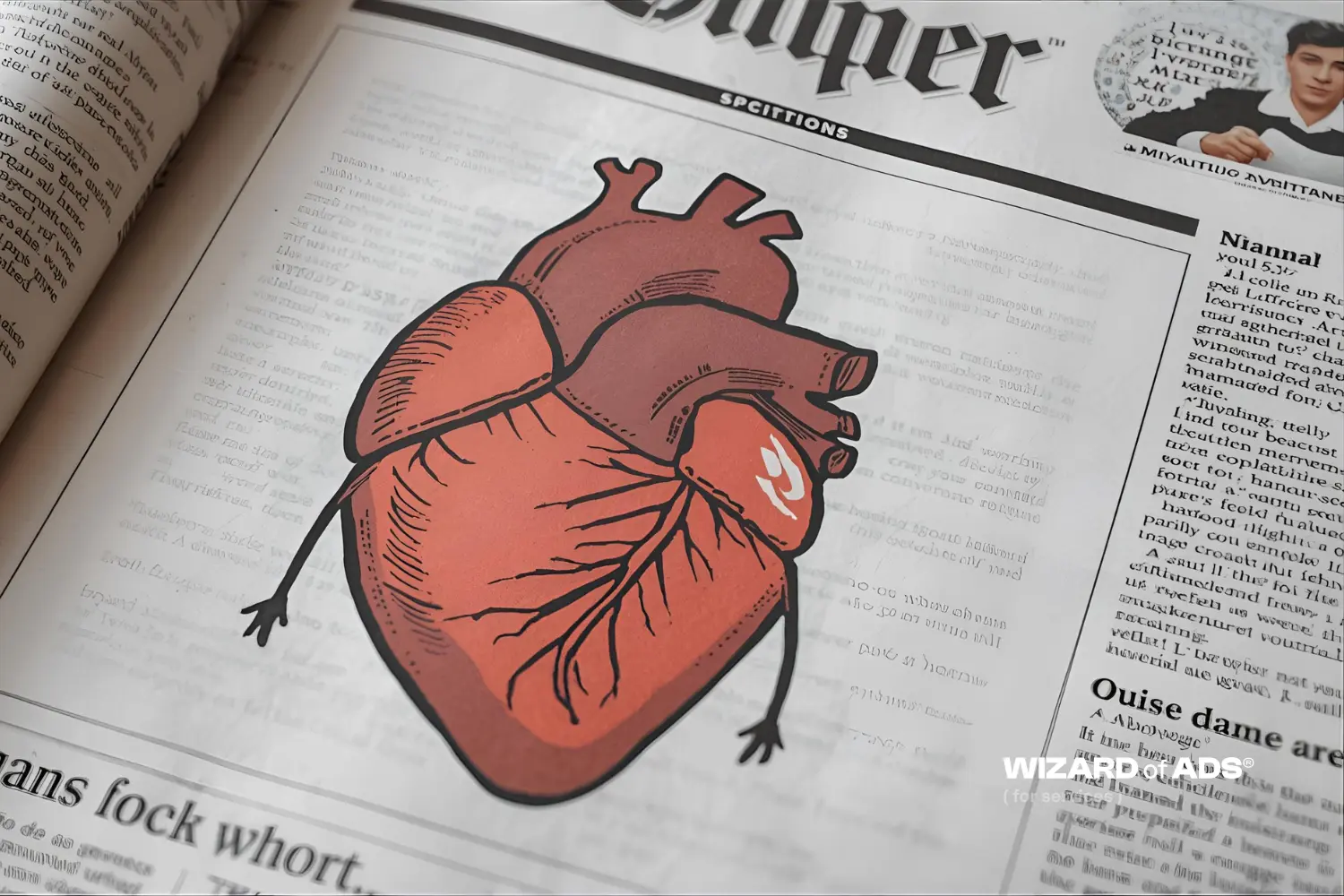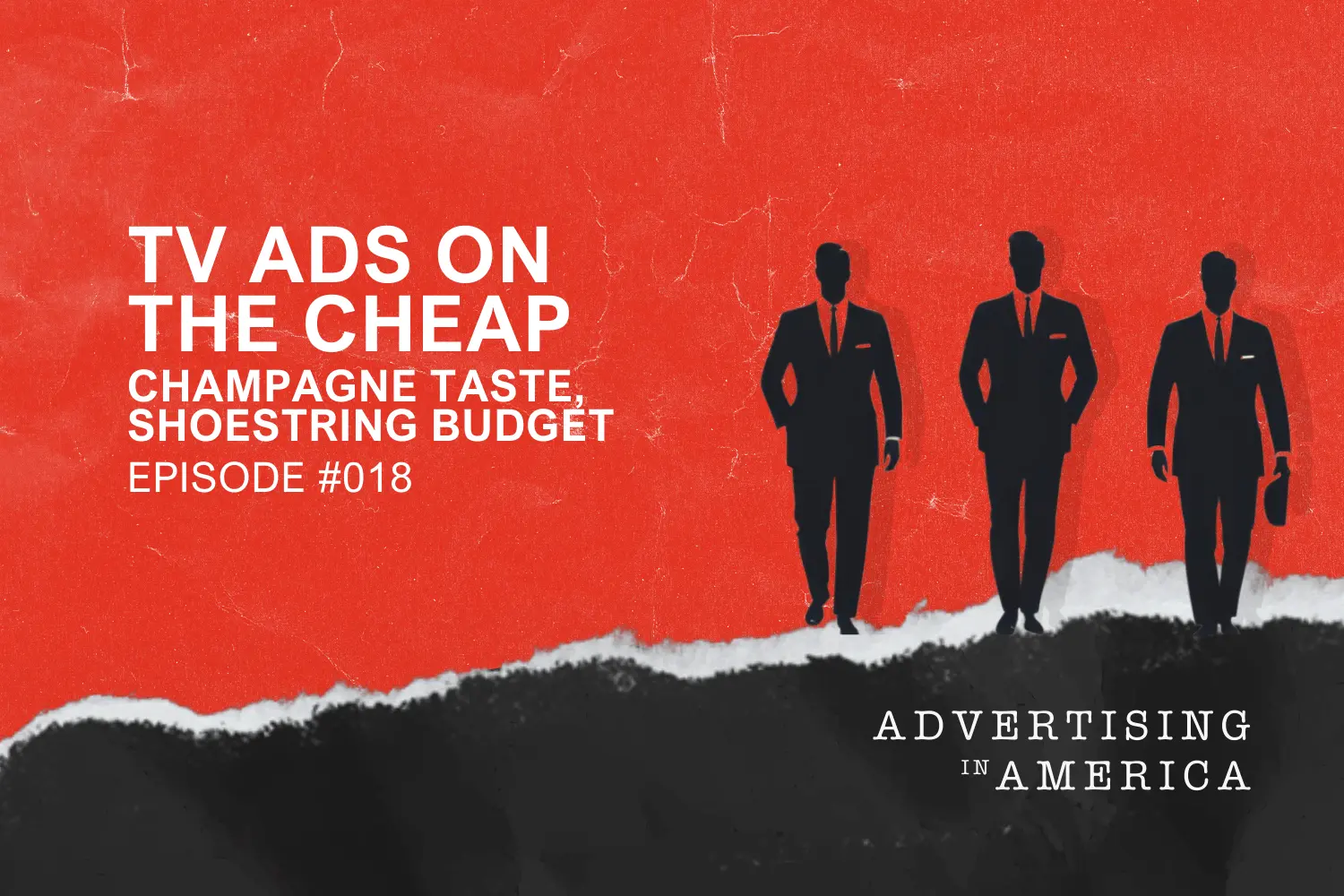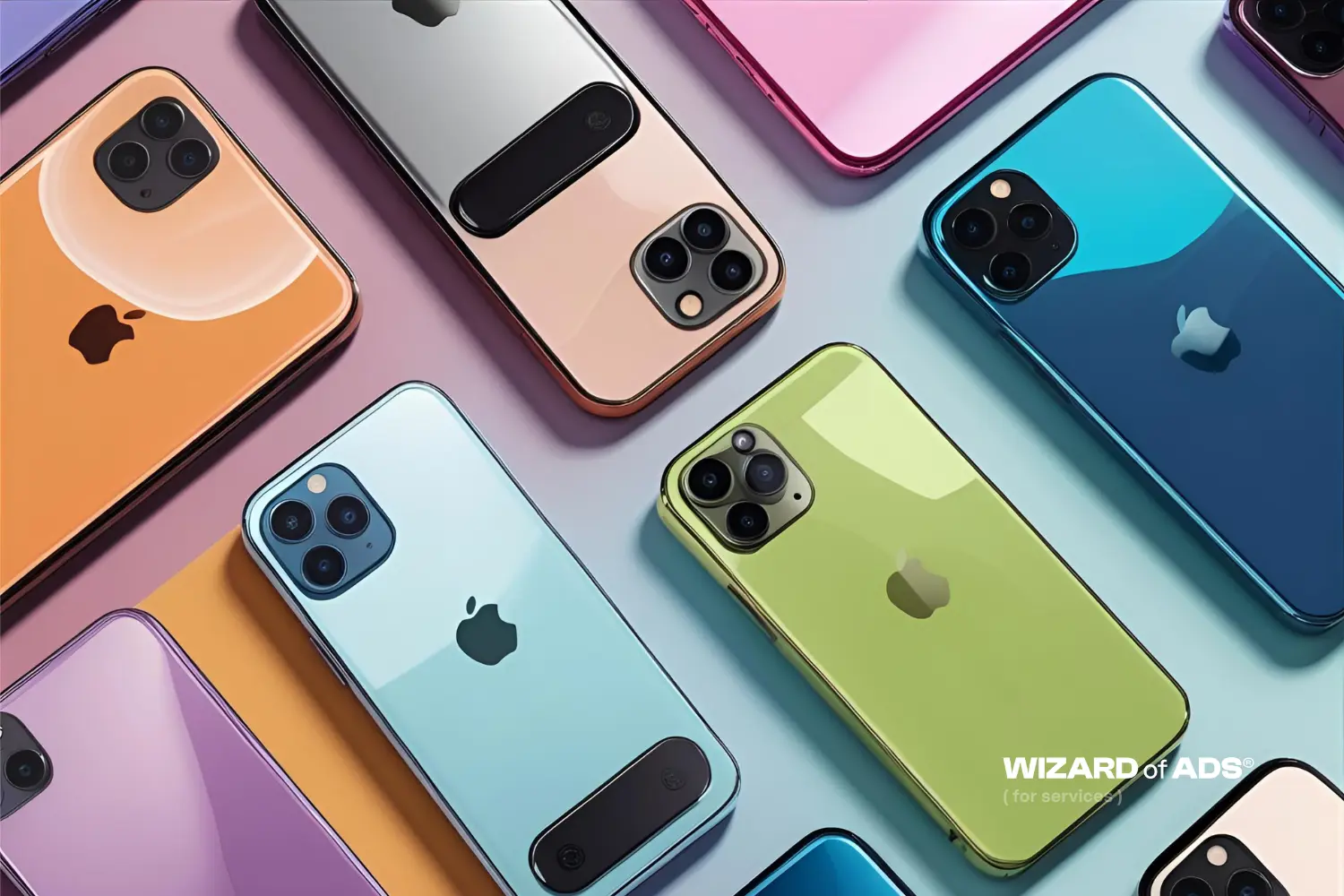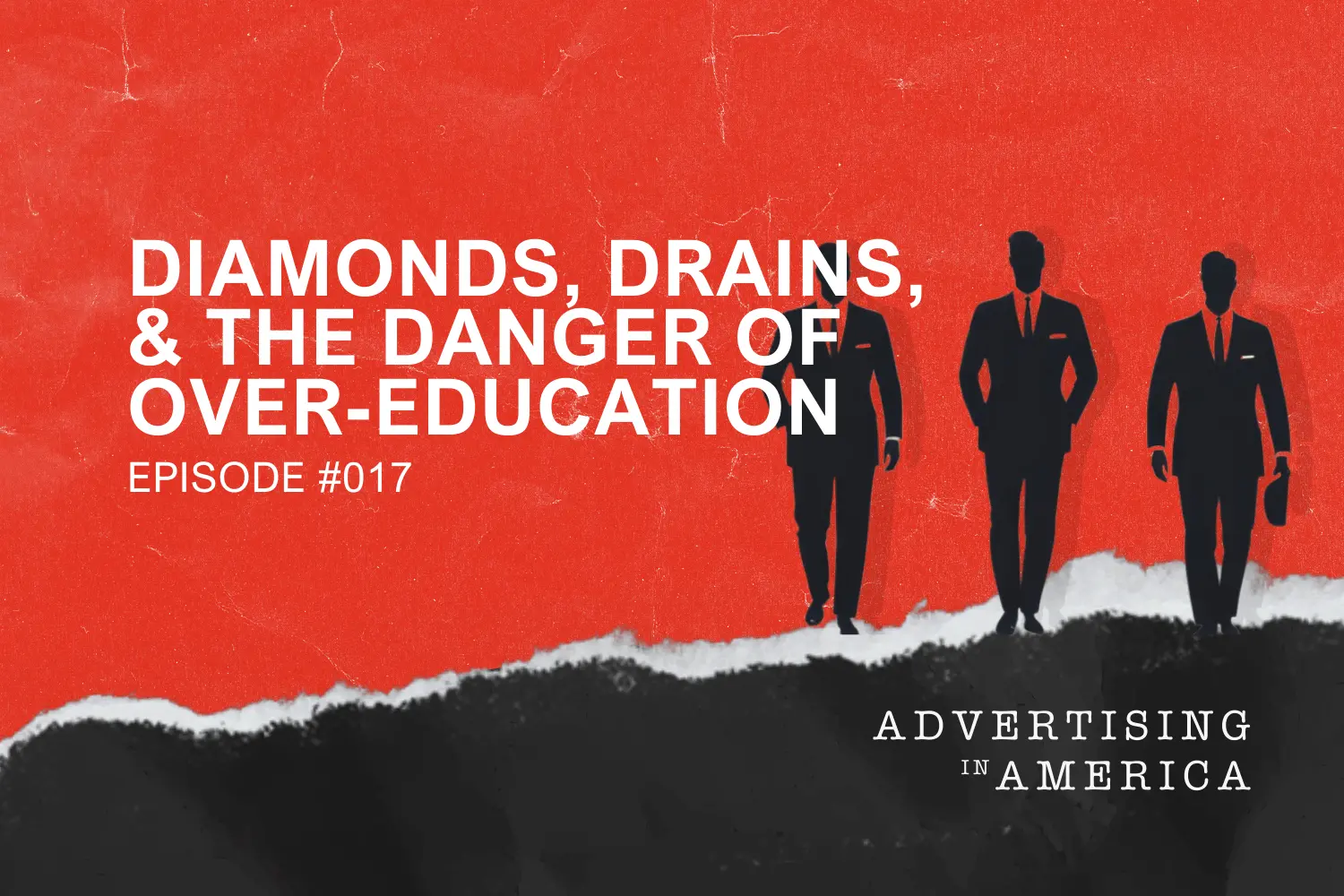
What's in a Name? More Than You Think, Kid.
Sure, you can succeed with a mediocre name. Orville Redenbacher did. But why fight uphill when a great name can grease the tracks?
In this episode of Advertising in America, your favourite trio of sharp-tongued strategists—Ryan, Mick, and Chris—take a no-holds-barred stroll through the world of business naming. We’re talking real names, fake names, dumb names, genius names—and the difference between a brand that sings and one that stinks.
Episode Highlights:
- Why most "strategic" names are really just pretty garbage
- The subtle art of saying something without trying too hard to say everything
- What kind of name boxes you in… and what kind sets you free
- And the danger of letting your committee—or your ego—pick the winner
If your ads sound like Charlie Brown’s teacher, it’s time to grab a seat, take some notes, and learn how to say something that sticks.
🎧 Hit play. Then stop teaching, start enticing, and for the love of Madison Avenue—talk to the heart, not the hard drive.
On today's episode of Advertising in America, we ask What's in a name? Does your business name matter, or will any old handle do the trick?
We all know some examples. Jiffy Lube, In-N-Out Burger, Dollar Tree, Thrifty Car Rental. Great names, right? Careful. If you do that, you aren't done. You have to lean into that. Federal Express wanted to convey that they could take a package from anywhere in the country to anywhere else in America and do it very quickly. Genius DoorDash, dropping food off at your house, even has alliteration going for it. It worked. People still think that you can succeed without a good name.
Orville Redenbacher proved that, but that doesn't mean it's not worth it to try to find a name that adds to the value of your brand.
Ryan Chute: On today's episode of Advertising in America, we ask what's in a name? Does your business name matter, or will any old handle do the trick? Let's go to DJ McMaster, T and C.
Mick Torbay: Okay, so I'm part of a Facebook group called Dad's Married to Doctors. We're all fathers. Our wives are all physicians. It's a remarkably diverse group, but one thing we have in common, there are no fuck offs in this group because doctors don't marry fuck offs.
There are a lot of entrepreneurial types in the DMDs, and every year or so, one of them will say, “I'm starting a whatever business, and I need a name. Post your best suggestions. Go.”
Now, the last time this happened, one of the guys asked me, “Why don't you ever respond to these? You do this sort of thing, don't you?” And I replied, “Yes, yes, I do. And that's why I don't respond.” Because there's more to a naming assignment than just brainstorming and picking your fave. Picking a business name this way is like asking your buddies to help design your building. This is no place for amateurs. Think of what a simple name did. For some iconic brands, Federal Express wanted to convey that they could take a package from anywhere in the country to anywhere else in America, and do it very quickly. Genius, DoorDash dropping food off at your house, even has alliteration going for it. Haagen-Dazs is an ice cream company from New Jersey. They wanted people to think they were. I don't know, Scandinavian, it worked. People still think that Ticketmaster, PayPal, OpenTable, Netflix, the name delivers so much.
Now, for every example I give, I'm sure you can name just as many that have no inherent value. Google, Ford, eBay, all successful companies, despite a name that brings frankly nothing to the table, but I'd argue most of those are holdovers from when people simply named the company after themselves, like Boeing, or were so freaking good at what they did that it didn't matter what it was called, like Apple.
So yeah, you can succeed without a good name. Orville Redden Baer proved that, but that doesn't mean it's not worth it to try to find a name that adds to the value of your brand. Just with the people at this table. We turned Allied Garage Door of Southwest Florida into Mo Better Garage. The Canadian Jewelry Group became the National Diamond Store, and a new in-ear headphone was named Sound Curves. You can almost picture how beautiful they are, can't you?
Did having a strategic name help these companies? Well, I think so. Bottom line, a strategic name for your business or brand is a possible asset, and if you're a startup or for whatever reason, you need to change your identity. I think you should go to some trouble to get one and do it properly. Don't ask your friends on Instagram, and just because people have succeeded without having one, doesn't mean you shouldn't bother to try.
Ryan Chute: How hard is it to make a bad name work? Am I right? Chris, what are your thoughts in the power of a name?
Chris Torbay: Lots of companies think choosing a name is an opportunity to tick a strategy box and move on. They have five or six things they'd like to say about their company, usually completely unremarkable. Table stakes, things like fast, cheap, friendly, convenient, and if the name says one of them, “Hey, job done. Customers totally believe that. And now we can move on to talk about all those other things now.”
And that can be true, but it can also be a curse. We all know some examples. Jiffy Lube, In-N-Out Burger, Dollar Tree, Thrifty Car Rental. Great names, right? Careful if you do that, you aren't done. You have to lean into that. You can't just move on to other things, you'd like people to know about your brand because you need to own this one first.
Everyone else says their brand is fast or cheap, too, but you're the one who named yourself that, so you have to go all in, and it will be harder, in fact, to move on to a quality message. For example, if your name boasts that everything you sell is a dollar. If your name is Jiffy Lube, you need to organize your business so that you are always Jiffier than any of your competitors. And since they all say that, they can knock out a quick oil change too, now you have to double say it because you named yourself that. Is it strategic? Sure. Is it a boat anchor? Sure could be because how many companies have tried that and then found themselves with a strategy that unfortunately evolved.
7-Eleven was a great name for a convenience store back when the average store was only open during traditional business hours. When every convenience store is open 24 hours, seven to eleven doesn't say much. This is where we end up with names like Kitchen Stuff Plus or Board Games & More. You wanted to be strategic, but then you found yourself trapped.
McDonald's hamburgers rarely uses their full name, and Kentucky Fried Chicken found themselves not wanting to be tied just to Kentucky. Good lord, please don't equate us with fried, and we'd like to sell you much more than chicken. So now they’re KFCA, great name, is like a great logo. It doesn't do the job for you.
But when you create the brand, it contributes to the story, or it has the capacity to wear that story proudly. And even an awkward name can do that. One of the most successful home services brands in America is Goettl, G-O-E-T-T-L. It'll keep you cool, but it's hard to spell. Combine that with a story of a young man who had to push through challenges to build the successful business he has today, and the whole thing works just fine.
Bigly wiggly. There's a supermarket I haven't forgotten about since Morgan Freeman's character in Driving Miss Daisy shouted, “I'm gonna drive you to the Piggly Wiggly”. Is it a great name? No. Yes, no. Yes.
The name you choose is just part of the story. It can be a boat anchor if you get it wrong, but it is rarely a rocket ship to success on its own.
Ryan Chute: Do you remember when KFC tried so hard to be kitchen-fresh chicken for a weird minute? In the early 2000s?
Chris Torbay: I don’t. They tried to do it, get rid of Kentucky and get rid of it, keeping chicken, and then they decided they probably wanted to sell fries.
Ryan Chute: Before we start naming names. Here's a shameless plug for our services.
So this is normally when Ryan throws to himself, kind of a commercial within a show about commercials, and that's fine. We could let him do that. But really, what you want to hear is me yelling at you. That's the reason you tune into the show. Sure. The conversations are fun and the insights are thought-provoking, but what you really want is cursing, and that's where I come in.
I mean, I don't want to get all shit or get off the pot on you, but at the moment, Ryan's doing this whole. “I'll give you 45 minutes of my time to help you narrow down your challenges and find a solution thing”. You think that asshole will give me 45 minutes to shoot the shit, but here's what he does. This maniac will go over everything, your sales process, your offers, your loyalty club, and yes, your marketing, and then you don't have to do a fucking thing.
You can take all that insight and roll if you like what you hear and want a deeper dive, dive away, my friend. Ryan ends up not working with about 90% of the people he meets, but the ones he does end up working with, they start here. So think about that. He's got a whole web thingy where you can book an appointment.
It's at wizardofads.services, stupid address. You want to believe it. And I'd say that to his face. wizardofads.services. And now let's get back to the stuff I really want to curse about. Shit.
Ryan Chute: As we do start to understand the identity, there is that weird disconnect sometimes that we see. How many times have we gone in behind a naming company, who suggests that they're the guys that should be naming your company, when in fact they're just producing empty cartridges that you're supposed to fill with some cute and clever story?
Nothing strategic. It doesn't make any sense to me. You really do need to understand the mission and the values, the intentions of the owner, the competitive landscape that you're in, your target audience and how that matters. Is it a local play, a regional play? Is it a national play? Where do you go to get to the thing that you're trying to achieve? And I think that's lost a lot of time in naming of companies.
Chris Torbay: Well, sometimes I think it's the effort of trying too hard. It's funny because I believe in all of those things, and I believe in approaching its strategy. And as Mick says, it's not just blind brainstorming, it's kind of focused brainstorming with the strategy behind it.
But getting to a result. If it looks too much like you have reached a strategic result, then almost by definition, it's not right like it; it kind of emotionally has to be right. But if it's, in a sense, if it's too brilliant, then it gives itself away as trying too hard. And I think this is equally true with names and logos, which is, I love it when logo designers come in and say, “Well, it's a two stripes with a dot above. Now the two stripes represent North America and South America, our two largest treating regions. And the dot represents the intellectual center of the what”. It's like, come on, man, it's two stripes in a dot. And they are brilliant, looking like two stripes in a dot. And it makes me feel good about your company. So, stop being overly strategic about that and let's go with it.
Nike has a swoosh. Coca-Cola has a wave, like there's lots of less thought-out things, and I think that's true with logos and names. They need to be able to wear the message or the larger story, but it is not their full job.
And if you think of Amazon, so Amazon's a great name and it wears the whole, the wears the entire story. When somebody tells you, “Yes, and see Amazon, Amazon is the world's largest ecosystem. So you see, that's why it's a great strategic name for the thing”. You go, “Oh, that is clever.”
But I didn't need to know that. It's not like it came bottom up from the name. It's that. Once I know that and it works and the name needs to be such that it works. And when somebody says, and you see how the smiley arrow thing actually goes from A to Z? Cool. But again, I didn't have to get that from the thing. It's nice when it comes in later. So it is this weird middle ground where it's not that I expect it to do the work, and that it is so obviously doing the work, because that is showing your underpants.
Mick Torbay: Well, I also don't believe that it was nearly that strategic when Amazon was just a bookstore, because it was just a bookstore because it wasn't the world's biggest ecosystem. It was never supposed to be the world's biggest ecosystem. It was just an excellent way to buy books. And so I think a lot of the time when something becomes tremendously successful, we can sort of look at it and say, "Oh, well, naturally that succeeded”. It's like it is like, I think what I think what we're doing is we're throwing a dart at a board and then we're drawing a target around it.
Chris Torbay: Yeah. It's like going back through Shakespeare, saying, “You see that this line, see? See what it actually means. Okay..”
Mick Torbay: Yeah. In hindsight, it is the world's biggest ecosystem. Before, it was just a word that everybody knew. It didn't stand for any other brand, and everybody knew how to spell it, which was really important when you're having an online business.
Ryan Chute: Yeah, and it was very important for an online business and making it easy for the person to be able to get from A to Z, pardon the pun. And ultimately. It took an incredible amount of advertising dollars, an incredible amount of energy and effort to make Amazon matter, right? The name itself creates this friction of making it easy with terribly spelled names or clever spelled names, where the I's and Y's have been switched or some other kind of goofy thing where they leave out particular letters or add an extra vowel in all of these things, just create an environment where it makes it that much harder for the customer to get to the thing that you're trying to get.
Chris Torbay: Yeah. And, I would ask customers, here's a survey question. “How many times have you ever chosen a brand because of their name?”
Right. And I believe in choosing a good name. I've done those assignments and I've changed, but I think when I develop a name, I also develop a name. It's like, what? What capacity does it give me? Not, what does it accomplish? You know, we, because we've done a couple of recent ones and, and we've created a name where I can see the campaign that comes outta that. And I can see how the campaign that comes outta that or works with that allows us to tell this story about this brand that we want to tell. So yes, it comes from, the inspiration does come from the brand, but the name doesn't tell the story. The logo doesn't tell the story. We still tell the story, and you look for, and that's why I think there are so many intrinsically bad names out there that are still very successful. And how many times have we done this with a, with a company that is intrinsically poorly named and you go, “What the heck am I gonna do with its dumb ass name?” And you go, “Well, you know?” Right. And that's the creative challenge. That's the thing that you say a lot, which is, you know, if you want to get a creative guy inspired, put him in a box and get him to find a creative solution out of it. Sometimes a bad name, you think is a bad name until you think of the most interesting, creative way to work with it, and then suddenly it's an asset.
Now you, but, but it, but it's the creative person. It's the communications person who makes it an asset.
Ryan Chute: Well, that leads us into the kind of second point out of five here, where we talk about choosing the naming category and Igor talks about a few different categories of names: evocative names, invented names, descriptive names, experiential names, and functional names.
All of these things serve a different purpose to get to an end result. They're all strategic, some better than others, and some are, are going to come with more creative juice to evoke our intentions as a business and to live in the space that we're trying to live in, be it locally, regionally, nationally or internationally.
So evocative names trigger that emotion. The ideas related to the brand's purpose. You know, it's evocative. Monster.com is an evocative name. It's standing out above all invented names are a little bit trickier, things like Google?
Mick Torbay: Yeah. Or Kijiji.
Ryan Chute: Or Kijiji, right.
Mick Torbay: What's a Kijiji? I dunno.
Ryan Chute: Well, it's a, it's sure someone's gonna say it's something, it's an African something or other.
Mick Torbay: And I'm sure someone's gonna remind us now that a Google is actually a one with a hundred zeros after it. Fine. Right. But you know what? Nobody knows that. And nobody knows that it's misspelled, and it only doesn't actually apply.
Chris Torbay: And to that end, though, it is so fine. It tells a little bit of the strategic story, but it tells, you know, that, that. You know, infinitely huge. Okay. That contributes to what Google wants to say, which is, “We will give you a million options, or a Google of options”. Right. But that's not nearly the whole story.
Ryan Chute: And that meaning gets lost so often. I remember times when you were talking about your large agency days, and people were, you know, saying the swoosh and the dots all meant some crazy thing. And it's like it got so deep and so metaphorical. You know that?
Mick Torbay: Or it's to justify an hour-long meeting about the logo.
Chris Torbay: Well, let's justify that some logo companies. You know, gone away for a charge for an entire month, and it's charging a hundred grand for this. And so they come back and it's like an art gallery where they say that, you know, where it's a banana taped against the wall, but they say, well, the tape represents the imprisonment that we all feel intellectually.
And, you know, that blurb, which tries to make the thing more profound than it actually is. Well, can't you just say it's a really cool shape? I think people are really gonna remember it. It's gonna be very distinctive from everybody else. Because that's actually a huge win. You, you had the win. It's the right, it's the bullshit you tried to attach to it that lost me.
Ryan Chute: So, I mean, there is a balance in that subtlety. Descriptive names are like General Motors. They explain what the company does. They're there to just kind of put it out on the table.
And experiential names like Gogo- related to an experience or a feeling. Gogo is a Wifi for airplanes, so it's. Trip on a Go-Go. I guess you know when you're on the go-go make me up before you, before you, before you connect to Wifi, see what you, I see what you did there.
And functional names, you know, ho hotels.com, you know, directly describe that product or service, it's highly descriptive. We also get lost in that when we see companies that are named quality or absolute, or any of these things, where they're trying to be definitive and holistic, it's nearly impossible. To own that idea and attach it to what you represent?
Chris Torbay: Well, or you could do it, but as I say, then it's a restriction. If you wanna call you in Canada there was this, this big move for, 2-for-1 pizzas. A company owned calls themselves 2-for-1 Pizza. You pay for one pizza, they give you a second one for free. Cool. But like now, you can't be the most delicious pizza in town because the thing you've named yourself is that you get a free one. And so it is not that's cool. Now, if we also say We're delicious, boy, we're gonna win all of it.
Mick Torbay: Also, you sure as hell, better be selling two pizzas for the price of where the competitor sells one, because in all those situations where people say, “Oh, we're two for one pizza”. No, you're twice as expensive pizza, and we give you two of them, you know, we're, we're not gonna fall for that.
Ryan Chute: Buy one pizza for full price and get the second one for full price as well.
Mick Torbay: Well, and also when you're naming things, we have to bear in mind human nature, and human nature is always going to shorten things. This is a mistake that a lot of people make. They think that you can have a long, descriptive, complicated name and think that people are actually gonna say that, we all shorten it.
I mean, Federal Express isn't that long, and we still say shorten it, and we shortened it. Exactly. So bear that in mind. I mean, it's one of the reasons why Allied Garage Door of Southwest Florida. We changed to Mo Better Garage because it's significantly shorter, and now people can at least remember that.
If they shortened Allied Garage doors of Southwest Florida, what they're gonna do is they're gonna short it, shorten it to Allied, and they can't own the idea of Allied.
Chris Torbay: Well, because there's probably an Allied Trucking, there's, there's an Allied Taxi.
Mick Torbay: There’s probably a hundred Allied. And so they're never gonna own that idea. But what they could own is Mo Better Garage. And they at least have a fighting chance of people remembering their brand compared to another one.
Ryan Chute: Which would fall into the evocative world. This is we're taking something and going, what are the things that are going to stand you 600 feet above the competition? It can't be that you're different anymore. It has to be distinct. And that subtle shift is that everyone is different, like everyone else. Like, there is no different-indifferent anymore. We have to shift gears and point in a different direction. But we were also very strategic in Mo Better Garage to not call it Mo Better Garage Doors. Why? Because if they wanna sell any other kind of door, or epoxy flooring, or lifts, or storage, storage cabinet storage. Exactly. They have the freedom to do that now, and in the future, we ought to look at it from a standpoint of, is this going to be a local brand or a national brand?
So you start to shift these mindsets to what is the game that we're playing, what is the big vision and how we're gonna fit this all in. So you're absolutely right, now, where that goes to the next step is how we can focus in on the emotional components of it. If we don't have an emotional connection, it's way harder for your name to do the lifting that it needs to do.
Chris Torbay: Well, and again, you can't unfairly give that to the name. Philip Morris, famously, a decade ago, changed their holding company name to Altria, because it sounds kind of like altruism as opposed to cancer sticks, which is what Philip Morris sold is- is in people's minds,
Mick Torbay: Allegedly, we don't want to get sued.
Chris Torbay: And so, they thought, “Well, if we call ourselves Altria, then people will feel better about our company cigarette”. It's like, no, you gotta make people feel something about your company on your own. You cannot expect that a name change is going to do that. And there are a number of examples of corporations that sort of try that.
The reason people buy Acura is not because the name sort of sounds like accuracy. It's because the product lived up to being a slightly premium version of a Honda. And so people do find the value in paying extra for the Acura line than they pay for the Honda line. But you can't get away with doing it just with an evocative name and thinking, “Well, now we've got that solved”.
Ryan Chute: Yeah. Evocative with that's empty or void of authenticity, we know that when it feels disingenuous that it's pulling the wrong emotional string. And we are looking for that emotional, and we want positive resonance outta that emotional string that pulls, and just any old word ain't gonna do.
And using the generic go-to words that you would see on any good core values list aren't gonna cut it either.
Mick Torbay: Well, no, in fact, if you pick a word that is generally used in your category, you never have a problem when it comes to search, which matters. Which is why a company called Best Barbershop is a problem, because you will not be the only answer to that question.
Chris Torbay: When somebody Google's best barber shop in town.
Mick Torbay: So you might say, “Oh, that's brilliant because when people want the best barbershop, they're gonna get us?”
It's like, “No, Google knows better than to just only give them one answer.” If you called yourself Kangaroo Barbershop. Then you have a better shot of being the only one when people are putting in your name.
Ryan Chute: Well, and that's a trap that came from Yellow Pages, where A1 and AAA and all those things were the cheat code for a minute. And then in Google, the cheat code was what the search terms? What are the best search terms for searching for the best barbershop?
That worked for a minute, Google uses natural language processing. It's 2025. We have to be more sophisticated in our approach now because not only are we creating a challenge. Now, but is there an opportunity within that? Sometimes, sometimes there's ways that you can pull on that, but it's very often limiting. It's not going to have the legs and the depth that you're hoping that it's gonna have.
Mick Torbay: You also need to bear in mind that changing the name is almost always, at first, a liability. I mean, changing a name requires changing minds, and we really don't like changing minds in advertising. That sounds counterintuitive because when you're trying to persuade people to make a decision, but we actually don't want to change minds. We wanna find out where the minds are and then attach our brand to what the consumer's already thinking.
If people are thinking of you as one thing, and then we want them to think of you as another thing, that's really, really fricking hard, right? So when you're thinking about changing your name, bear in mind that you should only do that if you have to.
Ryan Chute: I agree. And I would say if you currently don't represent anything in anyone's mind, if you've never advertised or if you've advertised so little that the only people who would know it's not a household thing, right?
Mick Torbay: Yeah. Then you're not changing people's things. We're merely starting from scratch. We're starting from scratch. But I can give you an example of a client who needed to do this. It's a client of ours, a plumbing company in Dayton, Ohio, and they were called All Drain. And All Drain is an excellent name for a plumbing company. But the first thing I ask them in our very first meeting is, “Are you ever going to offer more than just plumbing services?”
Because very often in these spaces, they will expand the number of trades underneath their umbrella. They say, “Well, we're thinking about getting into HV in a couple of years, but don't worry about that.” It's like, “Oh no, we're gonna worry about that because we're about to completely change your advertising. And I don't want to completely change your advertising twice. So if you're ever going to get into HVAC, we need to bear that in mind now, change your name to something that can take you through the next 20 years. And change it now so that it'll work.”
So we gave them a new name that had nothing to do, didn't say drains in it. Had a new name, was a strategic name, worked for Dayton, Ohio, was not physically restricted to the one trade that they're in now. So that's a good, that's a good reason to do it.
Ryan Chute: Neil Patel is in charge of Neil Patel, a SEO marketing agency, a hundred-million-dollar SEO agency, and he said the data is clearly supportive of a brand taking 10 years to build the full momentum that it needs when you start branding. And not the lightweight stuff that a handful of people, including your customers, will see. We're talking about the mass level of branding that happens when the majority of people. Have some sort of impression about you. The better your brand, the more they feel about your brand. Some people have name recognition. We had a client down in, in Florida where they had name recognition. I promise you, they were spending a King's ransom in marketing. We reduced their budget by a third, increased their total impact points or impression points by four times and leveraged the heck outta the name. And that company doubled in size.
Well, that's a big deal when you start to think about name recognition versus brand recognition. The whole point, which starts with a name, is how do we make people feel something about that name, not just know it.
Mick Torbay: I would also caution people who are in a situation where they have to change their name or they're considering changing their name, for god's sake, keep the committee outta the room. Because my rants about the committee are legendary. You can find those online, but the risk is with the committee on a naming assignment. Is that they're going to look at any name and say, yes, it ticks these boxes, but what is it saying about these boxes over here? It's not there to tick all the freaking boxes.
Apple ticks no boxes. Yes. So, it's fine. And it's fine. Absolutely fine. But I mean, you know, talking about trigger warnings, I mean, Kitchen Stuff Plus absolutely makes me go bananas, because someone at kitchen stuff said, “Yeah, but we're also selling things for the dining room. So we should call ourselves Kitchen Atuff Plus,” okay, so you just took your the name of your company, you made it slightly more cumbersome, slightly less easy to remember and gave me no new data with which to make a decision.
Yeah, because “plus” doesn't tell me shit. Any tell time you call yourself…
Chris Torbay: All plus does is tell you that the first two words are sort of wrong.
Mick Torbay: That's it. If know, if you call yourself more than just signs, I don't know what else you sell except for signs. So don't do that. At least call yourself Dave Signs and then move on from there.
Chris Torbay: And again, that there's a name that has the ability, maybe I can build a story around Dave, maybe. Maybe there's a backstory there. Maybe there's a quality story we could tell about, Dave, you've given me something with Dave. You haven't given me something with Plus.
Ryan Chute: Yeah. That's it. That's exactly it. And we are right in the weeds of the fourth component that we consider around all these things, which is avoiding too descriptive, or limiting names, and avoiding difficult to spell or pronounce names, clichés or similar to competition names. All of these things are the common pitfalls that seem right because everyone's doing it. But the biggest pitfall is if everyone's doing it, you should probably do something different.
Chris Torbay: And then that was a real trend in the last sort of decade or so. Partly because all the good URL words got scooped up. And so, you can't call yourself. You know, tires.com, because somebody big and rich owns that one. So you try spelling it with two i's or a y or you know, something like that. I mean, that one's gone in Britain. I'm too sure too. But, and so you get all these things where they drop the second last vowel, and you know, all this kind of stuff. And, I think we're sort of past that, which is first, we used up all the real words. Then we used up all the misspellings of the real words.
Mick Torbay: Then, you know, we now we're left with Kajiji.
Chris Torbay: Now we're left with either totally made-up words or words that on first glance, have absolutely nothing to do with our business, or we're making up crazy words like Mondelez.
Ryan Chute: Well, and I think it goes back to the very first point, which is to understand what the intentions are and what we're going to start wrapping that strategy around. And that puts us into this step number five, where we start to set ourselves up for that comprehensive narrative. You know, I think of a name of a business, kind of like the working title of a book. If you haven't read or written the book yet, then what in the world is that title? But yes, a good idea around what might it be, and how many times do people change the name of their. Book once they've actually written it and gone, oh, it's actually not about that. It's about this.
Chris Torbay: Yeah. And that, to go back to the very beginning, that's why, you know, we believe in doing these naming assignments strategically. I mean, one of my last agency jobs was to work for a branding agency. And we would quite frequently do rebrandings because companies would evolve, and their original brand was tied to something that they really don't do anymore. They really do this new thing. And so we do a strategic look at it and so. It should definitely come from and you should definitely dig into what the business is and what its future is, and let's make sure we know that where that path is headed and pick something that's more appropriate to, anything in the cone of uncertainty that that path could be.
But again, given that, it doesn't have to tell that story. It has to be able to bear that story. It has to be able to be a component of that story. It has to be the bass player in that band. But it does not have to be the driving force.
Ryan Chute: It really comes back to alignment, right? In all of these things, if the bass players out of sync with the rest of the song, it sounds awful. You know, it's no different than a truck rapper or a logo. What should we be doing truck raps and logos for on a business that we don't even know what the right name is, let alone know what the right story is. That's all backwards. Now, have we had to tuck ourselves into working around those creative constraints? Of weak naming choices and weak branding choices that we elevate. Absolutely.
Chris Torbay: Sometimes you can turn that into a win. You know, you can. And that's what my Piggly Wiggly thing, right? It’s a ridiculously bad name. It's so ridiculously bad that you can run with it. You can lean into it, right? You can, you can make it a thing, and you can suddenly be distinctive, and you know, how strategic can you be with it? Not sure. I mean, I haven't looked into all of their advertising, but it's sometimes something that at first is very disheartening, very discouraging from a creative perspective. And, your first thing is, “Could we change your name so that I can create something that I can work with?”
And when the answer's no, it's almost a better challenge. Okay, so how can I actually make that make sense, because it doesn't. And sometimes the story you have to tell is now, such an interesting story because the consumer didn't see it coming. It certainly made you have to do something other than quality service selection and plenty of free parking because you somehow gotta justify this crazy ass name.
Mick Torbay: But bear in mind that that's, that's nitroglycerin. I mean that in the right hands will save your life; in the wrong hands will blow up in your face. There are so many examples of companies that gave themselves incredibly restricted names, and then they just ignored it.
I mean, there's a very famous, or not famous, but a very popular store in our city called Just White Shirts. And it just became a very popular men's wear store. And now they obviously don't sell just white shirts. It's like, “Guys, your name is killing you here.”
Chris Torbay: And they're just looking the other way.
Mick Torbay: They're just ignoring it. They're just pretending it didn't happen. It's like, well, now what you need is a really good copywriter to dig you out of that hole.
Chris Torbay: Sure. And now, do a tongue-in-cheek campaign about, “just white shirts, sorry, about the name,” you know, or do something. Run with it.
Ryan Chute: And that's one of the things when handed a creative constraint like this is to sometimes lean into the campaign being about the name.
Ryan Chute: You know, one of its ways around.
Chris Torbay: That's what Goettl did. And, to rhyme hard to spell with it acknowledges that it's kind of a hamfisted name, and what are you gonna do? But it makes you people interested. Now you kind of want to, it's what are they? It's weird.
Mick Torbay: It's like Orville Baer.
Chris Torbay: It is Orville Redden Baer. Brilliant name, you know.
Mick Torbay: So I do have one piece of advice though for people who are considering changing their name, and they're perhaps bringing in a company to do a naming assignment, and this, and it's gonna sound like I'm being silly or facetious here, but I'm actually being very honest.
If you've got someone doing a naming assignment, be very wary of placeholders. Do not use a placeholder.
And so, because everybody uses placeholders, I'm gonna give you the placeholder that you have to use and the name of your company, the placeholder that you need to talk about while you're waiting for it is, stupid, stupid, crappy barbershop. Literally, call it stupid, crappy barbershop while you're waiting for someone to come up with the answer.
And the reason is because you know that can’t really be it.
If you start calling it “Ryan's Barbershop” as a placeholder while the people are coming up with the name, then in the month and a half while you're working on your business and doing your build out, and talking with renovation people, you're gonna start to fall in love with Ryan's Barbershop.
Chris Torbay: As bumpy as it might be, it gets less bumpy for you.
Mick Torbay: That is human nature to just, whatever you pick, you'll just kind of start to like it because you're just gonna say it over and over again. And then you're gonna be fighting with a new great idea that your naming company has come up with. And then the thing that you kind of fell in love with all on your own. So you, there will be a placeholder use, “stupid, crappy, whatever”, so that you do not fall in love with it.
Chris Torbay: Yes. This is how I got into the actors' union. I demoed so many of my own commercials and then went to a casting session to get somebody else to read them.
And the client had been listening to my demo for a month, and by the time we gave them the new cast, it's like, “I don't know, I kinda like Chris's version.”
Mick Torbay: Chris is not a real actor.
Chris Torbay: Yeah. Uh, but I still got the gig. It yes, absolutely happens.
Ryan Chute: That's fantastic. What does your name say about you?
Could you see it on a national TV ad? Does it represent your intentions, your solution, your purpose, and what you're trying to achieve with the business itself, locally, regionally, or nationally?
Names are really, really important, and they should be true to you and true to what you're trying to achieve. When we get back. We'll wrap this up with a few ideas on how we can best name your business.
Remember that saying, only half your marketing is working. You just don't know which half. Let's help you with that. Book it free strategy session with wizard Ryan Chute today at wizardofads.services. Yes, that's a URL wizardofads.services. Now let's get back to the show.
Ryan Chute: There are four things we'd like you to take away from today. The first is to embrace boldness. Names like Call Ada and Mo Better Garage succeed because they break the mould of their categories.
Two, is to prioritize simplicity and clarity. The name should be easy to spell, pronounce, and remember.
Next is to tell a story. A great name is a foundation for a compelling brand narrative. And lastly is to own the lion's share of the mind. Unique names create competitive advantages and avoid legal conflicts. Until next time, this has been Advertising in America.
Thank you for joining us on Advertising in America. We hope you enjoyed the show and captured a nugget of marketing magic. Wanna hear more? Subscribe, leave a review and share this podcast with your friends. Do you have questions or topics you want us to cover?
Join us on our socials @advertisinginamerica. Wanna spend your marketing budget better? Visit us at wizardofads.services to book your free strategy session with Wizard Ryan Chute today. Until next time, keep your ads enchanting and your audience captivated.

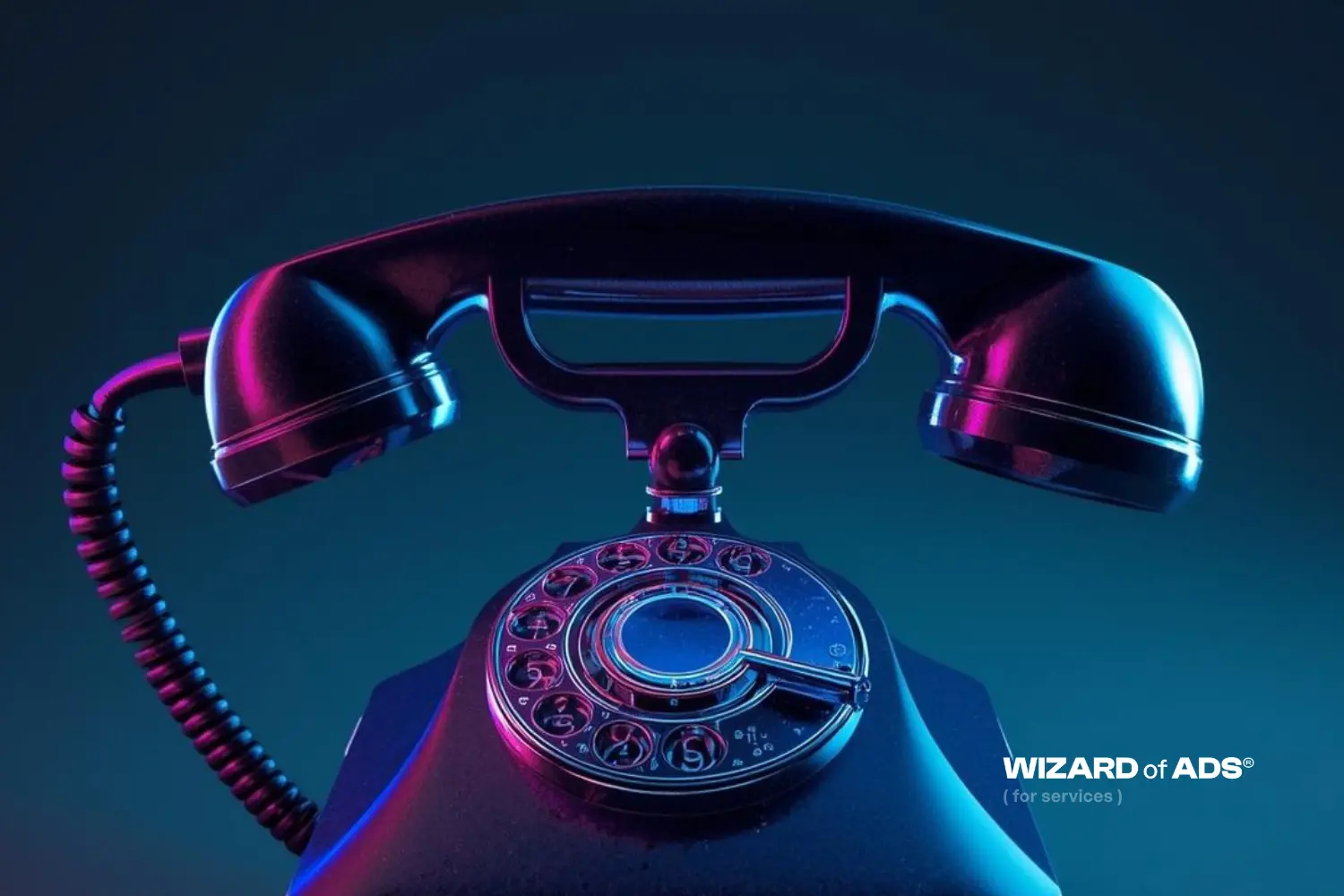
.webp)
.webp)
